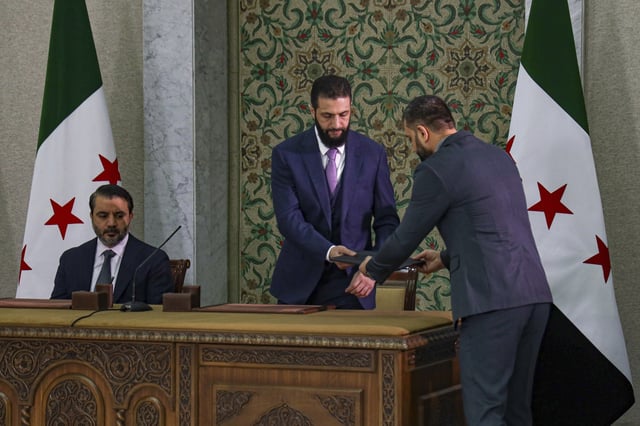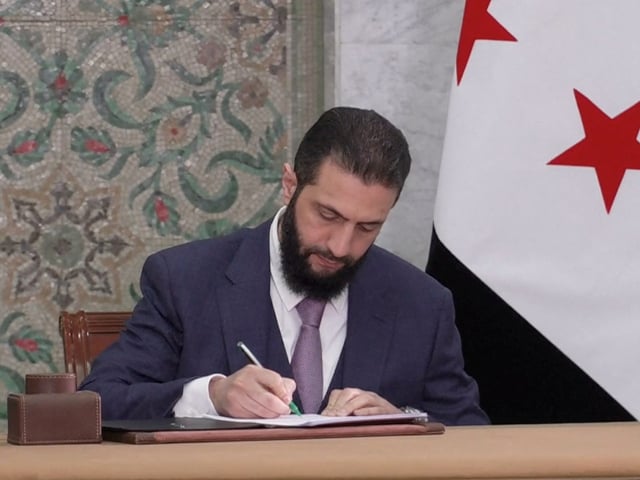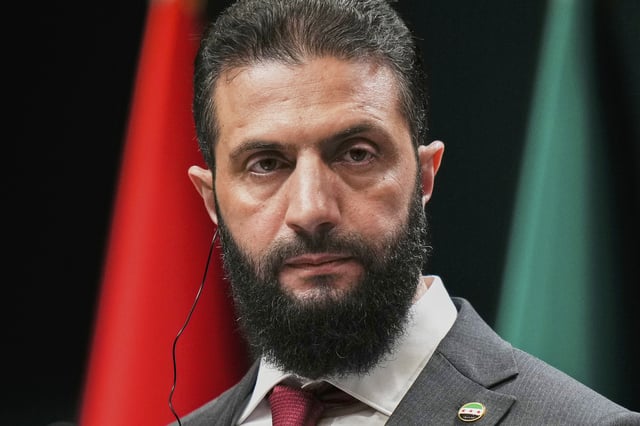Overview
- Ahmed al-Sharaa, Syria's interim leader, has signed a constitutional declaration outlining a five-year transitional period with provisions for women's rights, freedom of expression, and judicial independence.
- The declaration repeals the Assad-era constitution and dissolves the previous parliament, but maintains Islamic jurisprudence as the primary source of legislation and requires the president to be Muslim.
- Sectarian violence erupted on Syria's Mediterranean coast last week, with mass killings targeting Alawites and other minorities, resulting in over 1,400 civilian deaths according to observers.
- The Kurdish administration criticized the new framework for failing to reflect Syria's ethnic and religious diversity, highlighting ongoing divisions within the country.
- UN Secretary-General Antonio Guterres has called for an impartial investigation into the violence and emphasized the need for an inclusive political transition to ensure accountability and national reconciliation.



